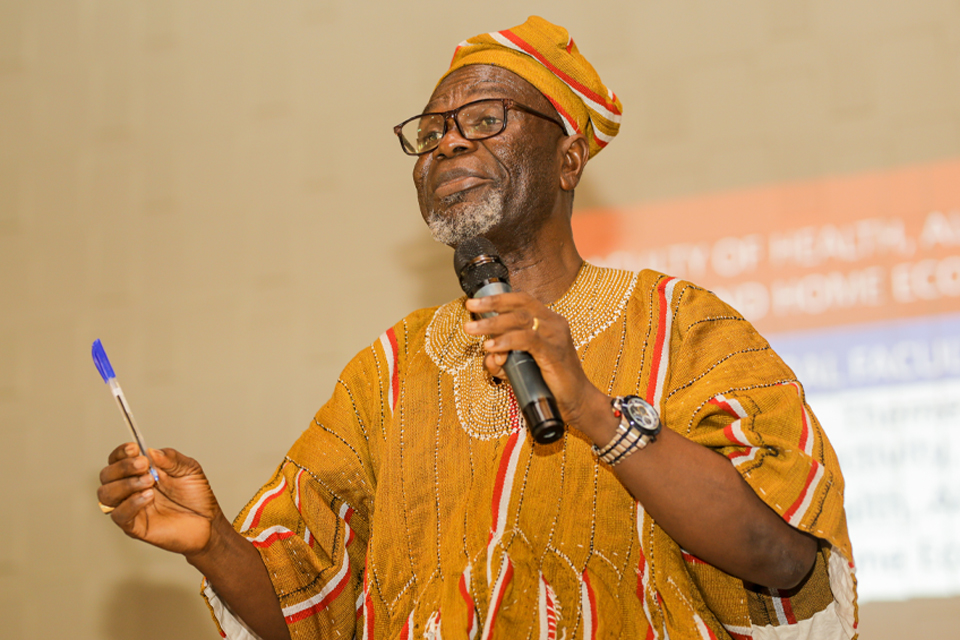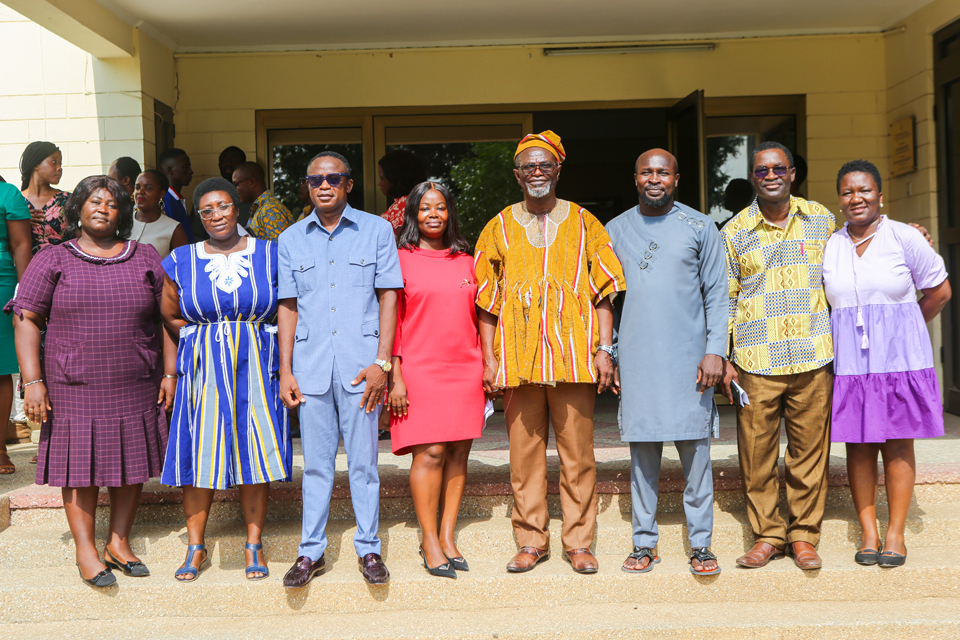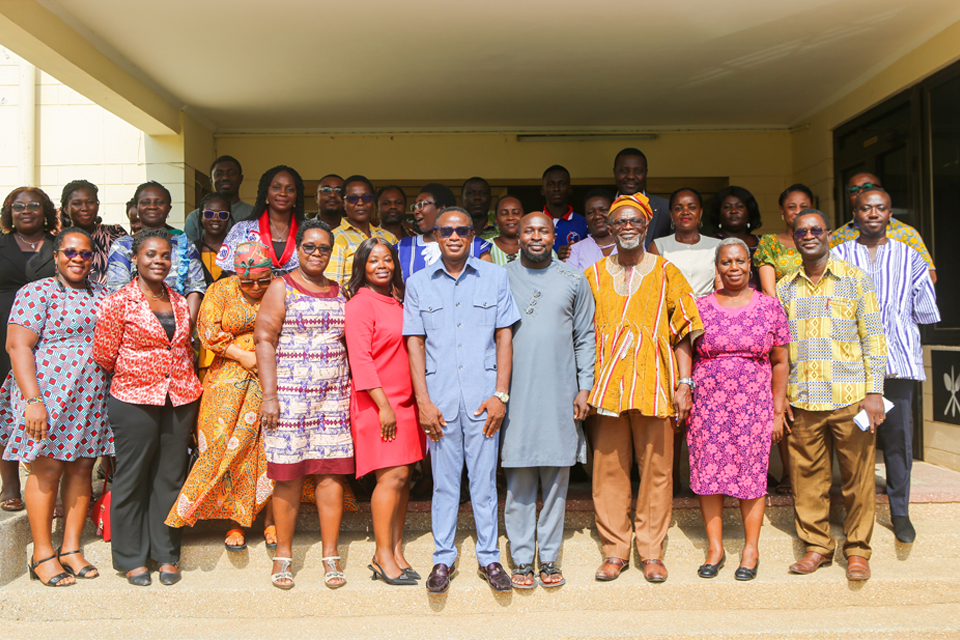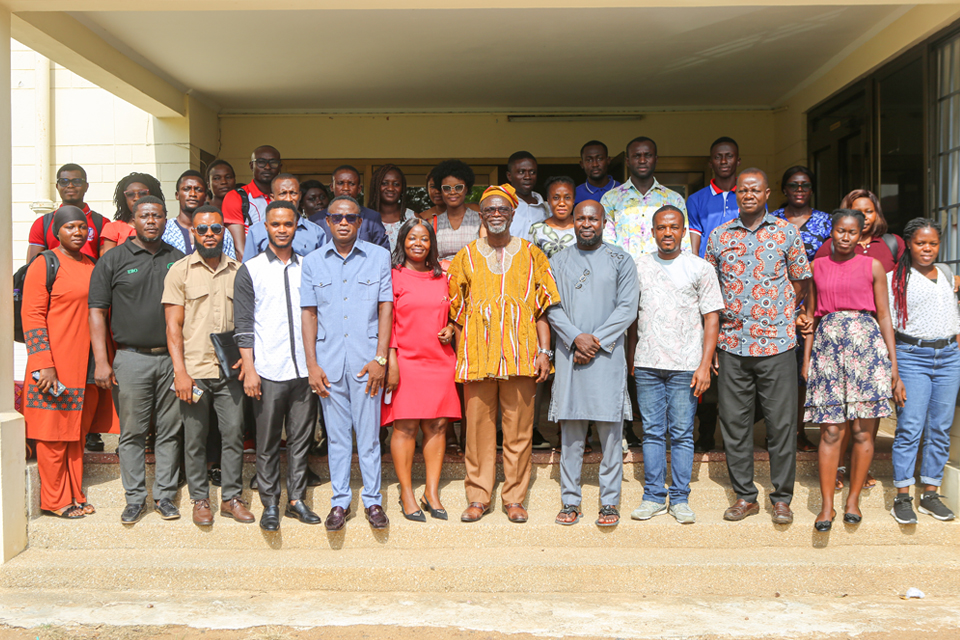FHASHEE Holds Inaugural Research Seminar

The Faculty of Health, Allied Sciences, and Home Economics Education (FHASHEE) marked a significant milestone as it hosted its inaugural research seminar, focusing on the pivotal themes of "Research Productivity, Innovation, and Impact in Health, Allied Sciences, and Home Economics."
Held at the North Campus Mini-Conference Room on Wednesday, February 21, 2024, the seminar drew a distinguished gathering of academics, students, and stakeholders eager to explore the frontiers of interdisciplinary research.
Chaired by Prof. Jonathan Ammah, former Dean of the School of Graduate Studies at the University of Education, Winneba (UEW), the seminar served as a dynamic platform for participants to exchange expertise, forge partnerships, and challenge conventional perspectives.

Prof. Ammah emphasised the profound significance of such gatherings in fostering dialogue and collaboration among faculty members and Master of Philosophy (MPhil) students.
"As a faculty, we encompass diverse disciplines, making interdisciplinary studies imperative. Faculty seminars provide a vital forum for sharing research findings and exploring innovative teaching approaches," Prof. Ammah articulated in his opening remarks, underscoring the event's significance.

Prof. Emmanuel Osei Sarpong, Dean of FHASHEE, echoed this sentiment, describing the chosen theme not merely as a technical agenda but as a rallying call to action. He urged participants to embrace curiosity and innovation, citing Albert Einstein's timeless wisdom: "The important thing is not to stop questioning."
Prof. Sarpong encouraged researchers to harness their passion to become adept grant writers, crafting narratives that capture the essence and potential impact of their work. He advocated for mentorship opportunities to guide fledgling researchers towards impactful endeavours.
The seminar also witnessed the inauguration of the FHASHEE Seminar Committee. It attracted a diverse audience, including past Deans of the Faculty of Home Economics Education, Heads of Department (HoDs), academic and administrative staff, MPhil students, and national service personnel.

Prof. Sarpong urged participants to translate their research findings into tangible solutions that address pressing societal challenges, including healthcare, environmental sustainability, nutrition, and community empowerment.
The FHASHEE research seminar exemplified a commitment to collaborative inquiry, innovation, and societal impact, setting a precedent for future endeavours in advancing knowledge and transforming communities.










